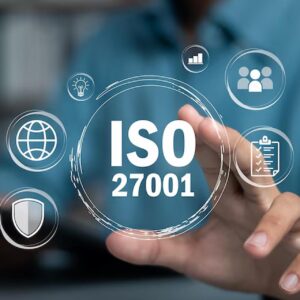ERP software improves business processes by integrating information from different departments into a centralized system. The benefits include faster reporting, better business performance, and reduced risk. Choosing the correct ERP version for your business needs is an important decision that should be made carefully. To do so, you should map out your requirements and choose an ERP that fits them perfectly.
Scalability
A scalable ERP solution is the key to your business’s growth and success. Scalability is the ability of a system or network to keep up with increased work and demands. It is a crucial business system feature essential for SAP ERP versions. ERP scalability can help you adapt to changes in your business and its processes without disrupting productivity. It can also allow you to expand your operations to meet growing customer demand. When your business grows, it’s essential that you can add new users, manage a large volume of data, and implement new features. While scalability isn’t an easy process, it’s a necessary one. It can be challenging to change the software as your business grows, and you’ll need to watch for any potential roadblocks that could delay or hinder your progress. Fortunately, many ERP vendors offer scalability solutions to their customers. Some even include a dedicated team to ensure their software stays scalable as your business grows. Scalable ERP systems also provide other benefits for your business, such as multicurrency management and country-specific functionality.
Integrations
Whether you’re an eCommerce brand looking to get more out of your system, or a company that needs to improve its internal processes and data integrity, ERP integration can help. It links your ERP with other software systems, such as CRM and HCM, e-commerce platforms, industry-specific solutions, or other ERPs. Integrated systems give you a unified view of information from multiple applications and sources, making it easier to increase business process efficiency, improve customer experience, and facilitate collaboration across teams and business partners. It also allows you to monitor key performance indicators in real-time and ensure your business runs as efficiently as possible. The right ERP for you depends on your business needs and budget. But a good rule of thumb is to identify what your system needs to do and then find one that can deliver on it.
Functionality
ERP systems typically offer various functions and features to suit specific business needs. They’re designed to address all aspects of the business – from finance and accounting to supply chain management, marketing, and human resources (HR). For example, a company that sells products online might choose a solution with an inventory control feature. It also might want one to help it track and improve customer service based on survey responses or support tickets. Another potential option is a system that provides a single source of information so everyone on the team has a clear picture of what’s happening with the business. This can help companies avoid errors, such as late shipments or a cash flow crunch, and ensure that business decisions are based on accurate, real-time data. A system that offers this level of integration and intelligence can be a valuable resource to companies, whether small or large. Especially with an ERP system delivered in the cloud can save businesses operational and capital expenses because it doesn’t require a physical server or software upgrade every 5 to 10 years. A robust and modern ERP system can boost efficiency and improve performance across the board by automating manual processes, tracking financials and automating reporting, mitigating financial risk, and more. It can even provide a trove of business insights, including predictive analytics, that allows companies to identify problems before developing and proactively responding to them.
Pricing
When choosing the correct ERP version for your business needs, consider several aspects, including cost. The price of an ERP system depends on several factors, including the number of users, deployment method, and training. Some vendors also offer additional services, such as software development and integrations, which can add to the cost. This will help you make an informed decision and avoid any unexpected charges. Choosing the correct ERP version for your business needs will require extensive research and a thorough understanding of your budget. Luckily, there are several options available to you that can suit your specific needs. Pricing models include subscription-based and usage-based pricing. Subscription-based pricing usually includes recurring maintenance and support fees. Usage-based pricing is a new option that calculates costs based on how much computing power, bandwidth, and data storage you use. This model allows businesses to pay only for the resources they consume, making it a good option for growing companies. Choosing the right ERP software is crucial for the success of your business. You can reduce costs and improve efficiencies with an integrated, scalable system that automates processes and collects data. It will increase your supply chain visibility, help you maintain customer satisfaction, and boost productivity.




